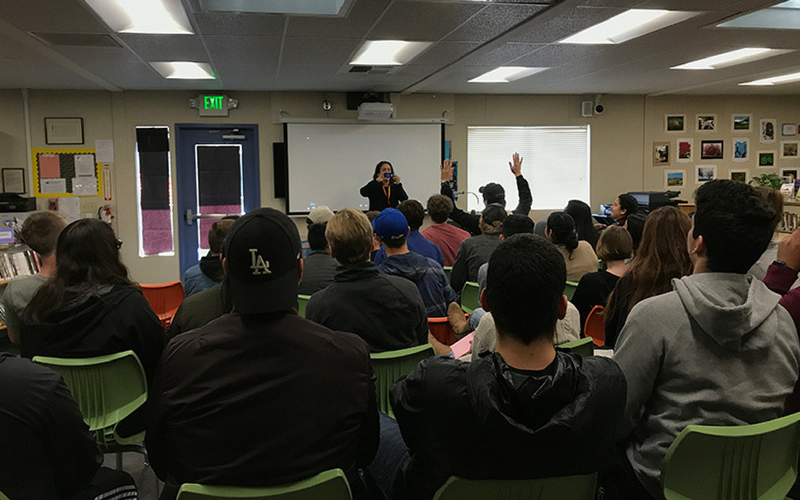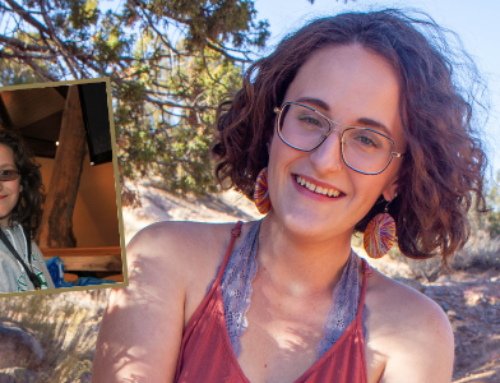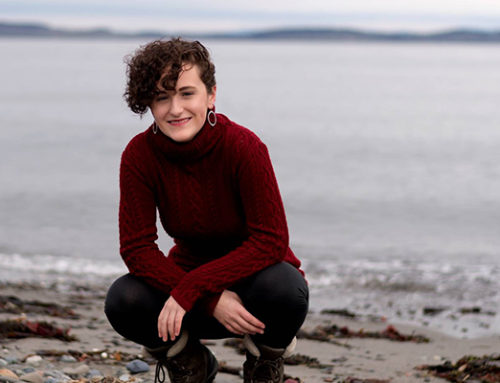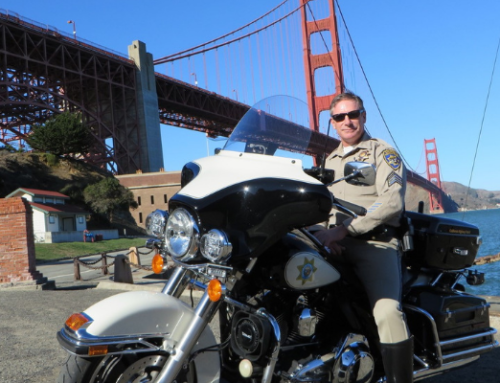I’ll never forget the first time I stood in front of a group of 9th – 12th graders after a viewing of The S Word. I was more nervous than I had been at any of our other screenings – including a Governor’s conference, the Mayo Clinic and the dozens of universities where we had screened over the past several months. I had no idea what to expect, as I am the mother of a high schooler – tough crowd.
However, the result was anything but. The moment I walked up to the front of the class, a hand shot up – a young man in the front row said “This film should be at every high school in the country.” Immediately followed by another hand – “A lot of us are struggling and we need a
film like this.” Exhale. A young woman two rows back (tears welling up in her eyes) “This film is a gift. I didn’t think I knew anyone who had dealt with anything like this, but now I know how to talk to someone who may be dealing with stuff.” And those were only the first three.
Yeah, adolescence is a difficult time – it’s that weird place between childhood and adulthood — raise your hand if you want to go back there. Yeah, social media can be very draining and confusing. Yeah, the pressures of high school are enormous – socially, academically,
athletically, emotionally. And on and on. For those reasons, and beyond, we need to give our kids the space they need to talk – ask questions – feel like part of a community. We need to support them, while empowering them to explore their very individual minds. Because they are in that awkward in-between space, we, as adults, need to find the balance that will provide a safe and expansive learning environment.
The S Word can help. Film creates a sense of community and a shared experience that is both personal and universal. The act of watching and listening to others talk about suicide can be life-altering. Once students are exposed to the true stories of survival outlined in the film, they possibly will never view suicide the same way. They will be provided with the resources and tools to think beyond thoughts of suicidal ideation and open up the discussion surround-ing prevention. The S Word is certainly not the panacea that is going to stop all future suicides – I don’t think any one thing is. However, we can play a role in being part of the conversation – even opening the conversation on occasion.
But, as we all know, that is only the beginning. We show the film, discuss and we leave. It’s up to every school to keep the dialogue going long after we’re gone, to focus on mental health from an early age. We need to spread the wisdom of the teacher who, ever since Columbine, takes time out each week to ask her fourth graders questions like who they want to sit with in the coming week. She then goes through these lists and identifies the kids who are never picked – kids who are falling through the cracks. Wouldn’t it be amazing if every teacher in eve-ry school in every city in every state in every country practiced this? Math. English. History. Physical Ed, Mental Health… It just makes sense.
Because suicide is such a complex issue – no single cause – no single solution, it is difficult to paint a picture of the typical suicide attempt survivor because there is no typical anything when it comes to suicide. Suicide is one of the few things that does not discriminate. It touches eve-ryone in some way. As I continue to traverse the country with the film I have had the honor of meeting many of these people. And, each of our stories will help the next person to find a common theme – a connection that gives them hope to face the next day – the next challenge. So, let’s all keep talking and always have each others’ backs.
Clearly, we need to get ahead of this. Suicide Prevention is a very broad term – it encompasses an upstream approach like early education and a more downstream yet extremely necessary approach – crisis intervention – and everything in between. There is no single answer. And the earlier we start talking about this the better chance we’ll have to save lives.
If you are struggling with suicidal thoughts, please contact one of the following organizations for help: National Suicide Prevention Lifeline – (1-800-273-TALK [8255]); Crisis Text Line – (Text HOME to 741741); Teen Line ( 310-855-4673 or Text TEEN to 839863); TransLifeline (877-565-8860); or Veterans Crisis Line (800-273-8255)







Thanks for all you do Lisa. You are amazing. Janet